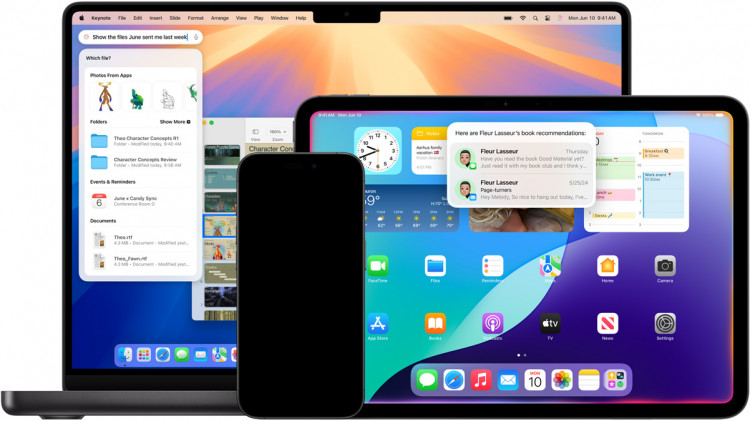Apple unveiled its comprehensive AI strategy at the Worldwide Developers Conference (WWDC) 2024. The company introduced "Apple Intelligence," a new technology integrated across its suite of apps, and announced a partnership with OpenAI to bring ChatGPT to iPhones and other Apple devices.
Apple's AI announcement comes at a critical time as the tech giant faces increasing competition from Microsoft and other big tech companies. Despite the hype, Apple's shares dipped by 2% during afternoon trading, reflecting investor anticipation for more expansive AI initiatives.
The new AI features, set to roll out with the latest operating system updates, were presented by Craig Federighi, Apple's Senior Vice President of Software Engineering. Federighi emphasized Apple's intent to streamline user experience, saying, "We want you to be able to use these external models without having to jump between different tools."
A key highlight of the conference was the integration of ChatGPT, allowing users to leverage the chatbot for summarizing text and generating personalized content such as birthday animations. This integration, available later this year, promises to maintain user privacy by ensuring that personal information is not logged.
Moreover, Apple has revamped its voice assistant, Siri, with generative AI capabilities. This upgrade enables Siri to manage individual app features, such as deleting emails and editing pictures, by understanding the user's specific intentions and the app's functionality. Siri will also utilize ChatGPT's capabilities, seeking user permission before accessing the OpenAI service.
Apple has consistently prioritized user data privacy, and its AI development reflects this commitment. The company plans to use a combination of on-device processing and cloud computing to power its AI features. Apple introduced "Private Cloud Compute," ensuring that while AI can tap into larger server-based models, user data remains protected. This method combines the computational power of Apple's proprietary silicon chips with cloud-based models, maintaining a balance between performance and privacy.
The iOS 18 update will enhance the iPhone's home screen customization and introduce improved versions of in-house apps. A notable new feature is the ability to lock specific apps to safeguard sensitive information. Additionally, Apple's email client will adopt a more organized structure, categorizing messages into folders such as primary, transactions, and promotions, mirroring functionalities in Google's Gmail.
Apple's Vision Pro mixed-reality headset will expand its availability to eight more countries, including China and Japan. The new VisionOS 2 software will leverage machine learning to create natural depth photos and incorporate new gestures, enhancing user experience in mixed reality.
Despite these advancements, Apple's AI strategy faces stiff competition. Microsoft, which has made significant strides by betting early on OpenAI, has recently overtaken Apple as the world's largest company by market capitalization. Furthermore, Nvidia, an AI chip giant, briefly surpassed Apple in value last week, underscoring a shift in tech industry dynamics.






